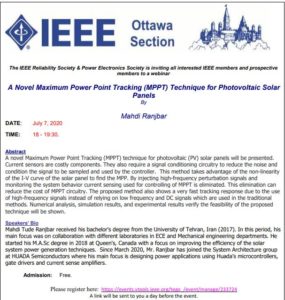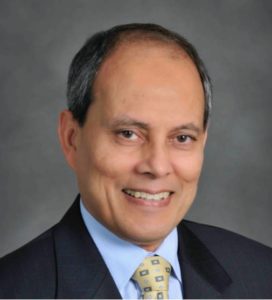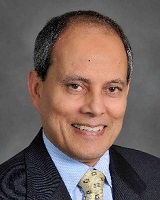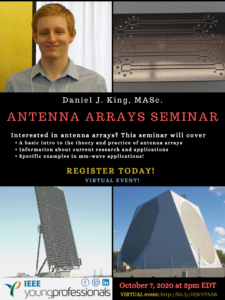Events

In this time of social distancing, we are pleased to announce that all the team members of IEEE YP and WIE Ottawa Sections are fully committed to providing online interaction and support to our community! In partnership with Professional Engineers Ontario, we present an online talk in “Clarifying the Path to Becoming a Professional Engineer.”
If you are an engineering undergraduate or post-graduate student, or a recent graduate starting out your engineering career, then this seminar might be for you. In it you will learn:
- What is PEO?
- What engineering experience is PEO looking for once I graduate?
- I have international engineering education and experience; how is that evaluated by PEO?
- How is my engineering experience evaluated by PEO?
- How do I prepare my Experience Record?
- What is the PPE?
- What is the EIT Program and the Student Membership Program?
The emphasis of this webinar will be on the P. Eng. licensure process – what PEO is looking for. The webinar will focus on how engineering experience is evaluated and how you can facilitate the process. Learn the dos and don’ts of preparing your licensing application for evaluation.
To participate, you will require: internet connection to view the webinar, phone access to dial into the conference for audio.
We look forward to speaking with you!

|
The IEEE Reliability Society & Power Electronics  A Novel Maximum Power Point Tracking (MPPT) Technique for Photovoltaic Solar Panels By  Mahdi Ranjbar DATE:      July 7, 2020 TIME:       18 – 19:30.     A  Mahdi
A link will be sent to you a day before the event. Â |

Webinar: Role of the Smart Grid in Facilitating the Integration of Renewables
Speaker: Prof. Dr. Saifur Rahman, Director, Virginia Tech Advanced Research Institute, USA, IEEE Power & Energy Society (PES) President 2018-2019, IEEE PES Distinguished Lecturer
Date/Time: Tuesday, July 28, 2020, 6:30 pm – 7:30 p.m. EDT
Admission: Free, but registration is required: https://events.vtools.ieee.org/m/234594
For more details, please visit: https://www.ewh.ieee.org/soc/pes/ottawa
Abstract – With the focus on environmental sustainability and energy security, power system planners are looking at renewable energy as supplements and alternatives. But such generation sources have their own challenges – primarily intermittency. It is expected that the smart grid – due to its inherent communication, sensing and control capabilities – will have the ability to manage the load, storage and generation assets (including renewables) in the power grid to enable a large-scale integration of distributed generation. In a smart grid, information about the state of the grid and its components can be exchanged quickly over long distances and complex networks. It will therefore be possible to have the integration of sustainable energy sources, such as wind, solar, off-shore electricity, etc. for smoother system operation. But in order for this to be possible, the electric utility will have to evolve, and change their ways of operation to become an intelligent provider of these services. This lecture introduces the operational characteristics of renewable energy sources, and various aspects of the smart grid – technology, standards and regulations. It also addresses the interplay among distributed generation, storage and conventional generation to provide an efficient operational strategy in the context of the smart grid.

ADMISSION: Free, but the registration in advance is required.
REGISTRATION:Â https://events.vtools.ieee.org/m/236964.
Abstract – A smart city relies on widely distributed smart devices to monitor the urban environment in real-time, collects information for intelligent decision making, and facilitates various services to improve the quality of urban living. The distributed network of intelligent sensor nodes, as well as data centers/clouds where sensor data are stored and shared, constitutes a smart city infrastructure. Smart cities address urban challenges such as pollution, energy efficiency, security, parking, traffic, transportation, and others by utilizing advanced technologies in data gathering and communications interconnectivity via the Internet. It provides real time and remote monitoring for different aspects of data management in areas such as transportation, communication, video surveillance, and sensors distributed throughout the city. Simultaneously, the Smart City building blocks like education, telemedicine, health care, IT applications, pollution management, etc. can be deployed in the IEEE Smart Village initiative to have a greater impact on the rural population throughout the world. through reliable electricity and internet connectivity.
Speaker Bio – Prof. Dr. Saifur Rahman is the founding director of the Advanced Research Institute (www.ari.vt.edu) at Virginia Tech, USA, where he is the Joseph R. Loring Professor of Electrical and Computer Engineering. He also directs the Center for Energy and the Global Environment (www.ceage.vt.edu). He is a Life Fellow of the IEEE and an IEEE Millennium Medal winner. He was the founding Editor-in-Chief of the IEEE Electrification Magazine and the IEEE Transactions on Sustainable Energy. In 2006, he served on the IEEE Board of Directors as the Vice President for Publications. He is a Distinguished Lecturer for the IEEE Power & Energy Society (PES) and has lectured on renewable energy, energy efficiency, smart grid, electric power system operation and planning, etc. in over 30 countries. He was IEEE Power and Energy Society President 2018-2019 and is now a candidate for IEEE President-Elect 2021.
He chaired the US National Science Foundation Advisory Committee for International Science and Engineering, 2010-2013. He conducted several energy efficiency projects for Duke Energy, Tokyo Electric Power Company, US National Science Foundation, US Department of Defense, State of Virginia and US Department of Energy.
For any additional information, please contact: ajit.pardasani@ieee.org or branislav@ieee.org

Date: October 7th 2020
Time: 5:00 – 6:30 pm EDT
Venue: Online – http://bit.ly/DJKYPAAS
Event Contact: Daniel J King (danieljamesking3@gmail.com)
IEEE Ottawa Young Professional Affinity Group presents an Antenna Arrays Seminar by MASc. Daniel J. King. Feel free to register and join us in this exciting event. Some of the topics covered are:
- A basic introduction to the theory and practice of antenna arrays;
- Information about current research opportunities and applications;
- Specific examples in mm-Wave applications!
Register today to this virtual event!
More info here: https://www.ieeeottawa.ca/wp-content/uploads/2020/09/antennas.pdf

